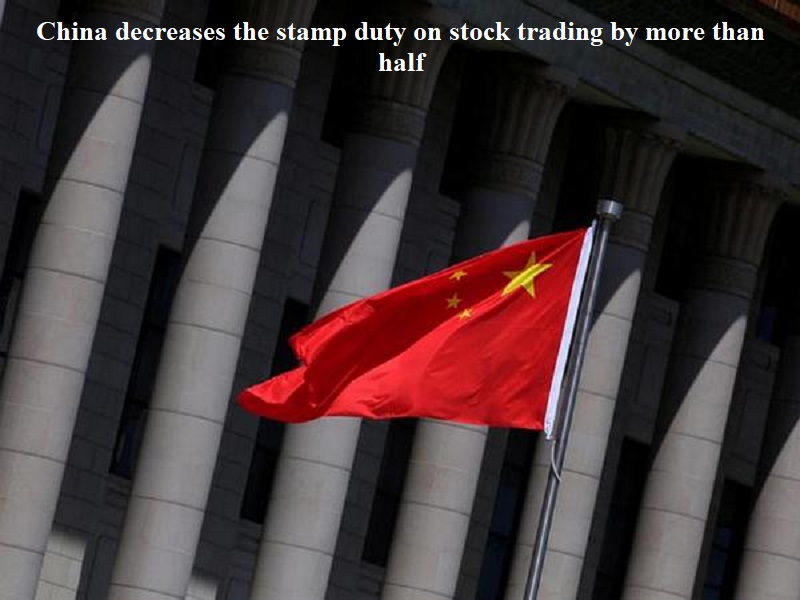
China has implemented a substantial reduction in the stamp duty for stock trading, slashing it by over 50%, and this adjustment will take effect from Monday. This latest move is widely interpreted as an effort to provide a much-needed boost to China’s struggling economy, which, as recently highlighted by the Wall Street Journal, has moved beyond its previous periods of robust growth.
In a concise statement issued on Sunday, the Chinese finance ministry declared its decision to reduce the existing 0.1% levy on stock trades, with the intention to “revitalize the capital market and enhance investor confidence.”
Earlier reports had indicated that authorities were considering a duty reduction of up to half in response to a significant drop in a key share index, which had descended to its lowest point in nine months.
Xie Chen, a fund manager at Shanghai Jianwen Investment Management Co, had already speculated on the potential outcome, stating, “While such a policy might yield a momentary market upswing, its lasting impact would likely be limited. The rebound could be ephemeral, perhaps lasting merely two to three days, or possibly even shorter.”
In addition to the finance ministry’s initiative, the China Securities Regulatory Commission (CSRC) is introducing measures to instill renewed confidence in investing in publicly listed companies. The CSRC revealed on Sunday its intention to slow down the pace of initial public offerings (IPOs) and to implement further oversight on major shareholders’ reductions of shares.
Concurrently, the CSRC has disclosed that stock exchanges in China are revising their requirements for margin financing, as part of their response to market challenges.
China’s stock market, positioned as the world’s second-largest, currently grapples with challenges stemming from red flags in the country’s post-pandemic recovery trajectory and a significant debt crisis within the property market.
China’s leadership has implemented a series of measures aimed at rekindling its previous periods of economic growth. However, market participants are urging a more robust policy response, potentially involving substantial government expenditures.
The latest official data has underscored the extent of the struggle, as it revealed that profits at China’s industrial firms have continued to decline for the seventh consecutive month this year, with weakened demand exerting pressure on companies.

Post Your Comments